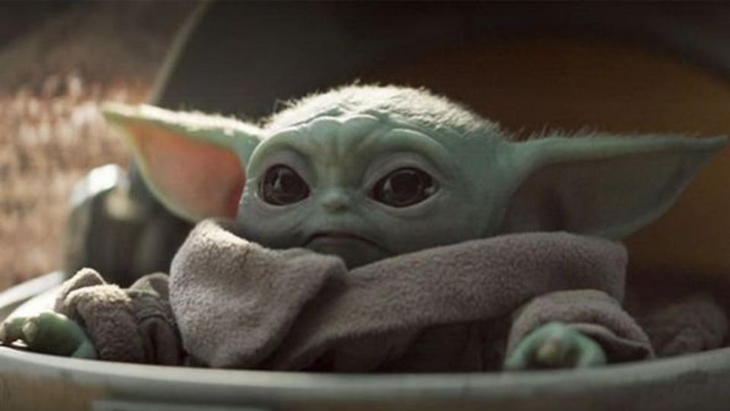
This is Niche Culture. In this column, we regularly cover anime, geek culture, and things related to video games. Please leave feedback and let us know if there’s something you want us to cover!
The Walt Disney Corporation may have issued copyright strikes over animated gifs of a character from Star Wars: The Mandalorian that fans have dubbed “Baby Yoda.”
For those unfamiliar, the show is set in the Star Wars universe five years after the events of Star Wars: Return of the Jedi, and debuted on Disney+ on November 12th. The first episode sees the titular bounty hunter sent after a target- only to find it is a mere infant of the same species as Yoda.
Yoda’s species has never been given a canon name, and the character’s official name is the far less enticing “The Child”. Audiences soon fell in love with it, and resulted in the far catchier fan-name “Baby Yoda“.
Along with high-quality puppets, puppeteering, and special effects, the character’s design and attitude cemented its popularity. Aside from being a literal “Muppet Baby” version of a character most people know, it has large eyes, engages in baby-like behavior, and stranger antics such as eating a frog-like creature alive and floating around in a little pod. It also showed a fair degree of intelligence (though still emotionally-stable as an infant), and even some Force powers.
This resulted in fan art, images and animated gifs from the show, and memes. Forbes senior contributor Dani Di Placido even argues it is the reason for the show’s success.
While the main character’s face has not been seen so far, Di Placido claims that thanks to a combination of the Kuleshov effect (reading emotion from tiny amounts of body language even when there is no face), and how the ruthless bounty hunter is willing to make sacrifices to protect a small child the audience wants to be safe as well.
” “Baby Yoda” isn’t just a cute piece of Disney merchandise; he (or she?) was absolutely vital to the humanization of Mando, and the moment he chose to spare the Child’s life, we understood his intentions. It wasn’t just the higher paycheck – clasping the Child’s tiny hand was a signal that there was a heart of gold underneath that metal.”
[…] “Knowing that there are forces out there that seek to kill the Child, and that Mando is his sole caretaker, doesn’t just provide tension; it means we are practically forced to care about Mando, our almost unknowable protagonist. If something happens to him, what happens to the Child?”
Nonetheless, Vulture reviewer Kathryn VanArendonk has reported (and tweeted) on November 21st that Disney may have ordered gif sharing website Giphy to remove the Baby Yoda gifs from its website, uploaded by Vulture. Or at least, for a brief time.
As of writing this article (November 24th, there are still many gifs on the website under The Mandalorian and Baby Yoda search terms. Even Vulture‘s own gifs have returned. As VanArendonk explained (via Forbes), gifs and memes would be protected under US “fair use” laws.
Many online have theorized that Disney recanted their demands (as Baby Yoda has been free press for the show, or realizing they had little legal right), Giphy had removed the gifs themselves, or even that Vulture had removed the gifs to make a story.
Nonetheless, Disney are certainly interested in focusing on Baby Yoda- with the Disney Star Wars films having a poor reception, and rumors that the test-screenings for Star Wars: Rise of Skywalker had critics and audience members walking out. Others have doubted this claim however, alleging that Disney does not conduct test screenings.
This news evokes concerns about how much free speech and fair use is being defended in the US.
The US House of Representatives recently approved of the CASE Act, which critics have dubbed the “anti-meme bill.” While it would allow both parties in a copyright dispute to settle the matter through the Copyright Office, critics are concerned it will allow large corporations to sue for damages of up to $30,000 even in the case of posting transformative works (such as memes).
The proposed bill has similar concern to Europe’s Article 11 and 13, both heavily criticized for using A.I algorithms to detect copyright infringement, and even taxing posting a hyperlink.
The US’ DARPA is also developing AI to detect “deep-fake” videos and audio, though some have expressed concern even memes not intended to deceive (i.e. parody) would be at risk.
In case you missed it, you can find our Star Wars Jedi: Fallen Order review here.